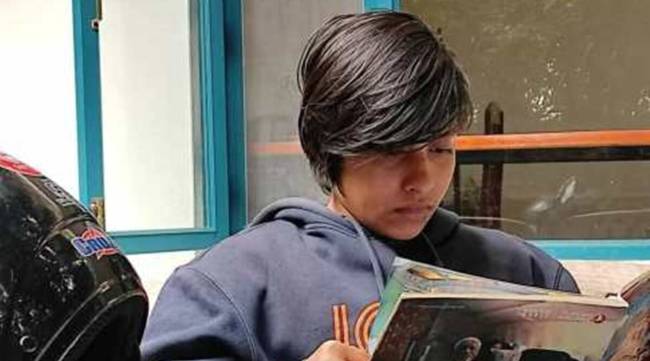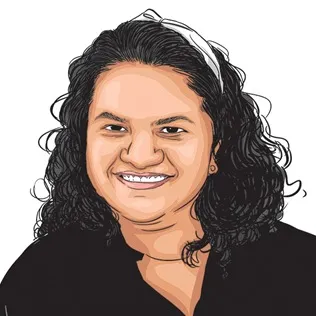Opinion Shraddha Walkar and Ayushi Yadav: Two women punished for making their own choices
The world out there is cruel, as Walkar’s murder has sadly reminded us. But what can’t also be ignored any longer is the cruelty within the family unit, that allegedly led to Yadav’s killing
 Shraddha Walkar
Shraddha Walkar Even in a media landscape saturated with reports about murders and other heinous crimes, every six or seven months there comes news of a death that forces us to pay attention, to compulsively follow every new development in the case. Sometimes, it’s because the news hits too close to home, sometimes it’s because the overwhelming public response to the death reminds us, yet again, of the faultlines in our society (crime is, after all, the biggest indicator of social issues) — more often than not, it’s a combination of the two.
However, what does one do when news of such murders comes not in the space of six or seven months, but within days of each other? Especially when both lead us to ask the same question — where exactly do women seek and find safety in this country? More than safety, is there anywhere that we can be allowed to think for ourselves, make our own decisions, and still find ourselves without public humiliation, societal disapproval, or in extreme cases, the fear of death? (Not that the former two stop with the latter.)
I am referring to the murders of Shraddha Walkar (allegedly killed by her partner Aaftab Poonawala in May) and Ayushi Yadav (allegedly killed by her father who opposed her inter-caste marriage). While one was murdered by her biological family in a so-called “honour killing”, the other was killed by someone she had chosen as her family after growing estrangement from the family she was born into. Those blaming Walkar for “leaving her family” and “defying her parents” seem to have gone completely silent on Yadav’s death. Not that her death is an anomaly — I can’t remember a time in my life when I wasn’t aware of what an “honour killing” is.
The two cases are completely unconnected, except that they involve two women who seemed to think they had agency over their own lives; most Indians, including Union Ministers, will tell you that even in these “modern times”, women must abide by patriarchal traditions and listen to what elders tell them, because to do otherwise would make our problems and miseries (and deaths) yet another I-told-you-so moment — and, of course, cautionary tales are used to “discipline” other women as well.
It is also difficult to ignore how quickly Walkar’s murder was turned into a so-called “love jihad” case. After a point, Poonawala’s identity as a Muslim and Walkar’s as a Hindu became the focal point of the discussions, propped up by her father’s statement to the police, “My daughter told my wife in 2019 that she wants to be in a live-in relationship with Aaftab Poonawala… my wife and I told her not to, because I am Hindu and… that boy is Muslim. We don’t do inter-religion/inter-caste marriage.”
There is a lot of sympathy for Walkar’s family — they are being portrayed as the wronged party, with the usual “they raised her so she could run away like this?” type of rhetorical questions being thrown around. However, there is hardly any censuring of Yadav’s family, even though they allegedly ended her life just because she married someone from outside their caste.
How does one make sense of this? On the one hand, Walkar has been blamed for not following her family’s dictums — no one seems to care about the larger issue of the vulnerability of women in chronically abusive relationships, and how they can access justice and safe spaces. No one seems to care about Walkar as a person either, choosing to see her solely in terms of the “mistakes” she made. Her humanity has been erased with one broad stroke of “love jihad” and “modern woman”.
Yadav’s humanity has also been erased. Before she was identified, a lot of the interest in her case stemmed from the sordid details of how she was found — covered in plastic and stuffed in a red suitcase which was abandoned in a service lane below the Yamuna Expressway in rural Mathura. However, after the police found the case to be one of “honour killing”, barely anyone seems to be interested in discussing it.
Is it because we have normalised “honour killings”? Are we, as a society, in silent agreement that a woman is better off dead than living because she chose her own partner? Isn’t that the warning we get from our families? Doesn’t the staple: “You should listen to us, you don’t know what kind of a cruel world it is out there,” imply a fate of violence and death for those who transgress?
The world out there is definitely cruel, as Walkar’s murder has sadly reminded us. What can’t be ignored any longer is the cruelty of the world “in here”, in the family unit that we are repeatedly told only has our “best interests at heart”.
arushi.bhaskar@indianexpress.com





